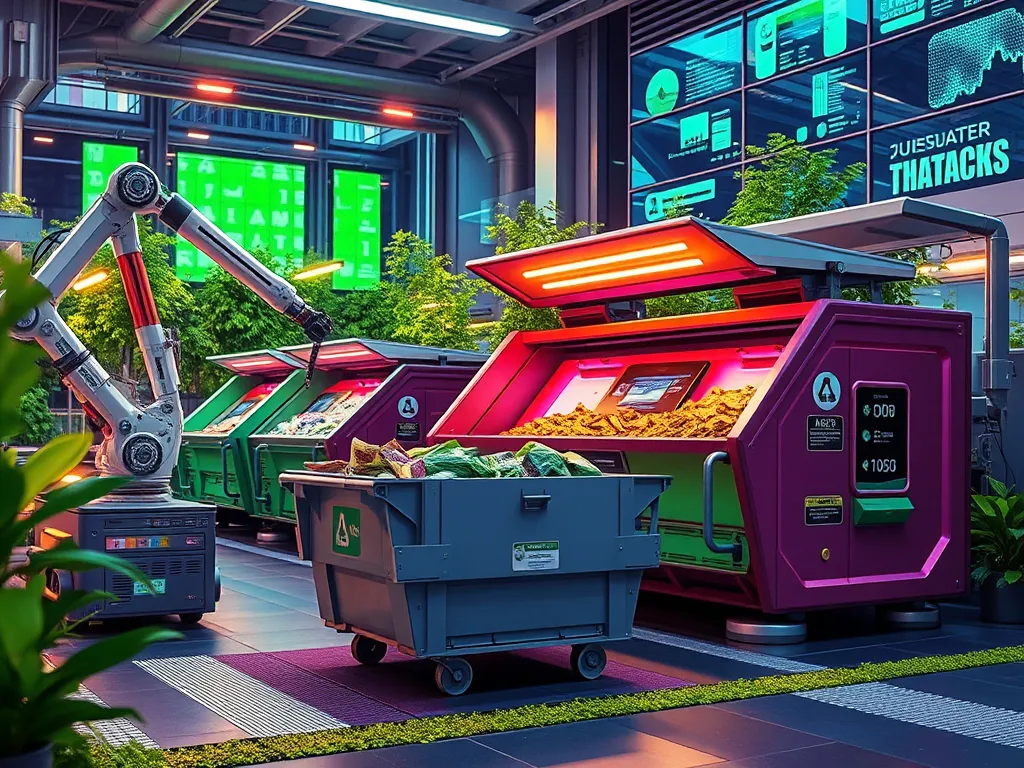Discover Innovations in Dumpster Rental and Waste Removal Technology

Innovations in Dumpster Rental and Waste Removal Technology
Innovations in dumpster rental and waste removal technology have transformed the landscape of waste management, making it more efficient, eco-friendly, and user-friendly. With the growing population and increasing urbanization, the demand for effective waste removal solutions has never been higher. Today's technology is not just about removing waste but also about how we manage and recycle it, paving the way for sustainable practices across industries.
One of the standout developments in this field is the integration of smart technology into dumpster rental services. Companies are now using Internet of Things (IoT) devices in dumpsters to monitor waste levels in real-time, allowing for optimized collection schedules and reduced operational costs. This innovation minimizes the frequency of pickups and can alert service providers when a dumpster is nearly full, ensuring timely servicing without unnecessary trips.
The recent initiatives at Virginia University highlight innovative approaches to sustainable waste management in higher education.
Moreover, route optimization for collection vehicles has become a game-changer in waste removal technology. By utilizing advanced algorithms and GPS tracking, companies can determine the most efficient routes for waste collection, reducing fuel consumption and lowering greenhouse gas emissions. This not only enhances service efficiency but also aligns with the broader goals of sustainability and environmental conservation.
Mobile app integration adds another layer of convenience for customers. Many dumpster rental services now have dedicated apps that allow users to book a dumpster, track its location, and manage payments seamlessly. These platforms improve customer interactions and provide real-time insights into service performance, creating a more transparent and efficient waste management experience.
As we explore further, it is evident that Innovations in dumpster rental and waste removal technology are not just limited to smart solutions. There is a significant focus on eco-friendly waste disposal methods as well. Recycling technology advancements help separate recyclable materials from waste more effectively, reducing landfill contributions. New composting initiatives aim to divert organic waste from regular disposal, fostering a circular economy and encouraging sustainable waste practices.
Smart Dumpster Solutions
The rise of Smart Dumpster Solutions has revolutionized the waste management industry. These dumpsters are equipped with IoT features that enable users to monitor the fill levels of the containers remotely. This approach not only improves operational efficiency but also enhances the customer experience by providing real-time data on waste capacity.
Real-time waste level monitoring is a crucial feature of smart dumpsters. This capability allows waste management companies to receive notifications when dumpsters are nearing capacity, leading to more efficient scheduling of pick-ups. As a result, companies can reduce unnecessary trips, save fuel costs, and contribute to reduced emissions.
Route optimization for collection vehicles is significantly enhanced by smart technologies. GPS tracking and data analysis tools enable waste management companies to calculate the most efficient routes for their collection vehicles. By taking into account factors such as traffic patterns and geographic locations, these systems help minimize fuel consumption and costs.
Furthermore, mobile app integration offers a seamless user experience. Customers can book, manage, and monitor their dumpster rentals through dedicated mobile applications. These platforms not only simplify the rental process but also keep customers informed about their service, allowing for easy communication with service providers when necessary.
Eco-Friendly Waste Disposal Methods
Our commitment to sustainability is driving the development of eco-friendly waste disposal methods. Recycling technology advancements enable more effective sorting and processing of recyclable materials, leading to higher recovery rates and decreased landfill usage. This ensures that valuable resources are reused rather than disposed of as waste.
Composting initiatives are gaining traction as well, as they provide a viable solution for organic waste. By promoting composting practices, both households and businesses can significantly reduce their overall waste output. This not only decreases the volume of waste that ends up in landfills but also creates a nutrient-rich soil amendment from organic materials.
In addition, the use of sustainable materials in dumpster construction is becoming a common practice. Many companies are investing in innovative materials that are not only durable but also environmentally friendly. This approach helps decrease the ecological footprint associated with dumpster production and disposal.
Lastly, carbon footprint reduction strategies are being implemented by waste management companies. By adopting electric or hybrid trucks for waste collection and optimizing collection routes, companies can significantly reduce their carbon emissions and contribute to a cleaner environment.
Automated Waste Collection Systems
The advent of Automated Waste Collection Systems marks a significant shift in the waste management sector. Robotic collection systems are being developed to automate the process of waste collection, from lifting to emptying dumpsters. This technology can streamline operations and improve safety for workers by minimizing manual handling of heavy containers.
Self-emptying dumpsters represent another innovative solution in waste collection. These advanced dumpsters can automatically dump their contents into collection vehicles, eliminating the need for manual labor. This not only speeds up the collection process but also enhances the overall efficiency of waste management operations.
AI-driven waste segregation technologies are being utilized to enhance the sorting process of waste materials. Through advanced algorithms, these systems can accurately separate recyclable materials from general waste, leading to improved recovery rates and reduced contamination of recyclable streams.
The impact on labor and operational efficiency is profound as well. While automation can reduce reliance on manual labor, it also necessitates a shift in workforce skills. Workers will need to adapt to managing and maintaining these advanced systems, ultimately leading to a more skilled workforce in the waste management industry.
Digital Platforms for Waste Management Services
Digital platforms for waste management services are transforming the way customers interact with waste management providers. Online booking and payment systems allow users to schedule pickups and make payments easily. This convenience is essential in today's fast-paced world, where efficiency and user experience are paramount.
Customer feedback and tracking tools facilitate better communication between service providers and customers. By gathering feedback, companies can improve their service offerings, while tracking tools allow users to monitor their waste collection schedules effectively.
Data analytics is becoming increasingly important in identifying waste trends and optimizing service delivery. By analyzing data regarding waste generation patterns, companies can develop proactive strategies that cater to customer needs and help reduce waste effectively.
Additionally, partnerships with local recycling centers are vital for enhancing the recycling process. By collaborating with these centers, waste management companies can ensure that recyclable materials are processed efficiently, contributing to a more sustainable waste management framework.
Trends in Commercial Waste Removal
Trends in commercial waste removal are changing with the rise of e-commerce, which significantly impacts waste generation. As businesses adapt to the growing demand for online shopping, there is an increased need for efficient waste management solutions that can handle the higher volume of packaging materials and general waste from logistics operations.
Innovative solutions for construction waste are also coming to the forefront as urban infrastructure continues to develop. Efficient waste removal systems designed specifically for construction sites help minimize the environmental impact of construction activities and ensure that reusable materials are appropriately managed.
Temporary vs. permanent dumpster solutions are becoming a focal point in commercial waste management. Businesses need flexibility in terms of dumpster size and duration of rental to accommodate their specific waste disposal needs. This requires innovative approaches to manage waste effectively without overloading the system.
Furthermore, customizable dumpster sizes and services provide businesses with tailored waste solutions. As each organization faces unique waste challenges, offering flexibility in dumpster size and rental duration enables businesses to optimize their waste management strategies effectively.
